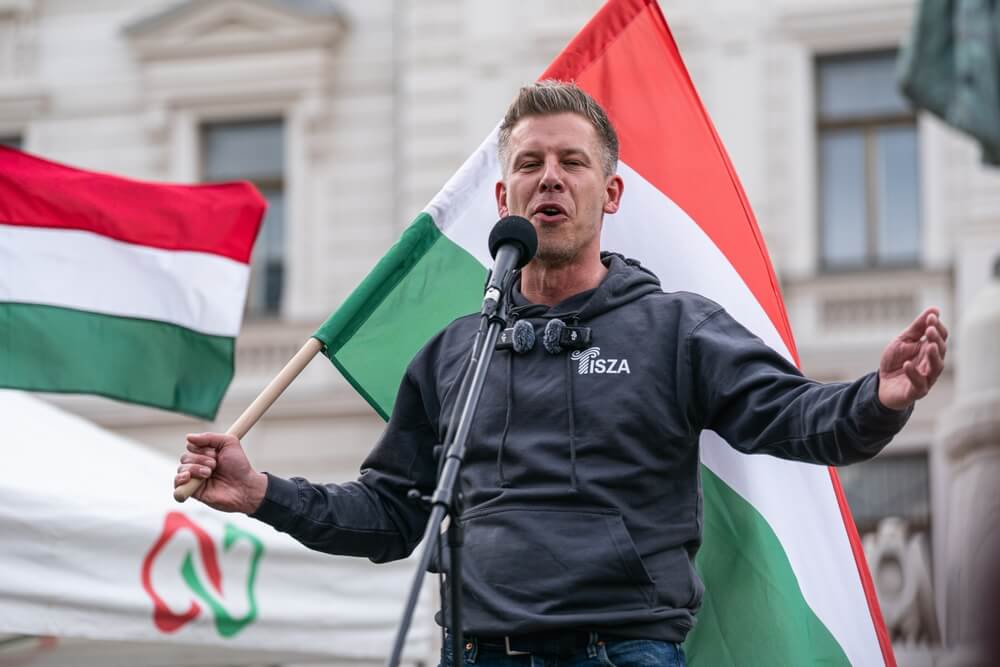If Hungarian Prime Minister Viktor Orbán is nervous about his trip to Washington next week, he has good reason to be.
Several events and decisions in recent weeks have sharply cooled the previously warm partnership between the Trump administration and Budapest, which was for years considered the European favourite of the American president.
According to the Hungarian populist leader, Hungary was often treated as such, whether or not Orbán had grounds for this belief.
Currently, Budapest's position in the White House is not particularly enviable. This must concern the long-serving Hungarian leader, who has tied his populist and Eurosceptic politics almost entirely to partnership with the US, largely ignoring Hungary's membership in the shared EU political and economic space.
As quickly as Budapest was propelled into the orbit of global politics as the potential site of a decisive Trump-Putin summit, it appears to have fallen from that position even more rapidly.
Although the White House officially announced on 21 October that there would be no Russian-American summit in Budapest, Orbán continued to hope he might still host Trump and Putin.
Now, there is no hope for that, and the interpretations of the cancellation of the Budapest summit are even more worrying for Orbán.
According to the Financial Times, the positions of the US and Russia regarding Ukraine are so far apart that not only is there no reason for a summit, but there is no prospect of such a meeting in the foreseeable future.
President Trump is outraged by Putin's refusal to compromise on territorial demarcations on the Ukrainian front and especially by the rejection of a ceasefire, which the American president expressly requests.
The worst outcome for Orbán
For Viktor Orbán, this new distancing between the US and Russia is the worst possible outcome. He bases his policy of resisting European solidarity with Ukraine on the expectation of an American-Russian rapprochement and, consequently, a ceasefire in Ukraine.
With Trump's arrival in the White House in January, Orbán's solo actions within the EU gained a powerful sponsor, and that honeymoon culminated in the announcement of a Russian-American summit in the Hungarian capital.
After the cancellation of the Budapest summit, Orbán will be forced to inject new energy into relations with the US
After the cancellation of the Budapest summit, Orbán will be forced to inject new energy into relations with the US in the White House next week, on which he has staked everything. However, that space is rapidly narrowing.
Trump's latest pressure on Putin, among the strongest in the past year, is evident in the introduction of sanctions against two Russian oil giants – Lukoil and Rosneft.
Oil sanctions
This is an area that directly concerns Orbán, who has for years managed to secure exceptions for Hungary in Europe regarding the continuation of oil imports from Russia.
Since the start of the Russian invasion of Ukraine, Hungary has not only failed to follow the EU’s path of reducing and cancelling imports from Russia but has even increased its energy dependence.
According to current estimates, crude oil imports from Russia now account for as much as 86% of Hungarian demand, up from 61% before the Russian invasion of Ukraine.
The Hungarian Prime Minister will have limited leverage in Washington to secure support for Budapest's interests
Just days before Orbán’s first visit to the White House since Trump began his second term, the US president is dashing his Hungarian friend’s hopes of obtaining an exemption and continuing to import oil from Russia.
“The President – he has asked for an exemption. We haven’t granted one, but he has asked. He’s a friend of mine,” Trump said on Friday.
Therefore, the Hungarian Prime Minister will have limited leverage in Washington to secure support for Budapest's interests. Boasts of personal friendship and claims of being Europe’s staunchest follower of Trump’s policies do not seem to be enough.
Last chance before the elections
Trump's moves towards Russia appear to be in line with Brussels, which recently adopted the 19th package of sanctions against Moscow, also targeting Russia's energy sector.
Orbán does not welcome the American-European rapprochement, as it reduces his blackmailing capacity to break consensus within the EU while also preserving the exclusivity of Hungary's direct partnership with the US.

Péter Magyar and his Tisza party has maintained a steady 4–7% lead over Orbán's Fidesz party since the beginning of this year
Furthermore, significant Chinese investments in Hungary, accompanied by a strong influx of "soft" Chinese power, are unlikely to be welcomed in Washington, especially during the ongoing trade war between the two economic superpowers.
Since 2023, Chinese investments in Hungary have surpassed those from France and Germany combined, with dominance particularly evident in sectors critical to Europe, such as the electric car industry.
Orbán's visit to the White House comes at a crucial moment for him, as it may be his only opportunity to secure support from Trump ahead of the parliamentary elections in Hungary in April.
Orbán's 15-year rule faces the real prospect of ending in elections in six months. His main competitor, former associate Péter Magyar and his Tisza party, has maintained a steady 4–7% lead over Orbán's Fidesz party since the beginning of this year.
In this context, the Hungarian Prime Minister faces significant challenges, not only in terms of verbal support from Trump and his movement, but also in terms of Hungary's political and economic standing.
This position directly depends on the directions Washington sets for areas far more important to the US than Hungary – namely, Russia, China, Ukraine, Europe, and the Middle East.
In such a situation, Viktor Orbán has little to offer the American president.